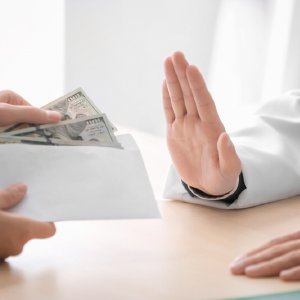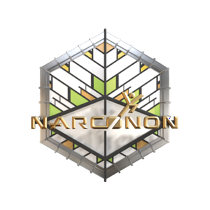Drug Abuse Now a Top Cause of Discipline among Nurses and Doctors

Drug abuse is so prevalent in our society today that just about every industry and walk of life is affected by it. Drug addiction sneaks into our lives in the most terrible of ways. It manifests in the form of a bad habit one of our kids gets, a crisis that affects our co-workers, or something that befalls a spouse. It seems like no industry or area or part of life is safe anymore. So it should come as no surprise to find out that drug abuse is now one of the leading causes of disciplinary action in the medical field.
Sure enough, new research indicates an increase in self-medication and substance abuse among doctors, nurses, and medical practitioners. A 2018 study from Connecticut brought this to light, and new research in other areas of the country is now producing similar results.
Connecticut Nurses Disciplined for Drug Abuse
It’s a sad day when the very people who are in charge of our health are the ones who fall prey to a health crisis of their own. “Disciplinary action” may be too heavy of a term to use here, but no matter what, it’s crucial to get these medical experts the help they need for their substance habits.
That’s precisely what’s happening in Connecticut. According to research done by the Connecticut Health I-Team and published in the Los Angeles Times, examination of all disciplinary actions taken against nurses from 2015 to 2017 showed that substance abuse was a factor in 82% of 282 total cases. More than half of all drug-related disciplinary actions were for the misuse of opioid drugs by medical personnel.
Sometimes, when nurses or doctors are caught misusing drugs, an action is taken against them. Other times, those who find them doing this just turn the other cheek. In another scenario, nurses or doctors may surrender their medical licenses before punitive action is brought to bear against them. Many individual situations can occur. The important thing to remember is that this happens more frequently than we thought.
According to the National Council of State Boards of Nursing and cited in the Los Angeles Times, a combination of long work hours, constant exposure to controlled substances, staff shortages, random shift changes, and a stressful work environment all combine to put nurses at a higher risk for developing a substance abuse habit than the general public. Nurses, in particular, are more likely to misuse prescription drugs than the general population since they have easy access to these pills throughout the day.
Connecticut has a program called HAVEN which stands for the Health Assistance InterVention Education Network. This confidential program offers resources and helpful assistance to medical experts who struggle with a drug or alcohol problem. When Connecticut nurses enter this program voluntarily, they can avoid discipline and license revocation.
Doctors Struggle with Substance Abuse Problems As Well

Addiction in the medical industry is not just a problem for the nurses. The entire medical community faces this crisis. Doctors struggle with a weakness to addictive substances just as much as nurses do. According to experts cited in another Los Angeles Times article, doctors, like nurses, are also subject to long work hours, poor scheduling, stressful job environments, and so on. The result? A tendency to turn to controlled substances or illegal substances to relieve some of that pressure.
And this creates a problematic scenario for any doctor. From Dr. Peter Grinspoon, Boston physician and recovering opiate addict, “You’re on a pedestal as a physician, and you’ve got all these societal expectations. In some ways, it’s harder to ask for help because nobody expects you to want or need help.”
The truth is, doctors are under a lot of pressure, both from outside and within, to maintain their composure while at work. Doctors feel obligated to continue their “poker face” as it were. Their personal lives and physical health might be falling apart, but that will rarely stop them from being good doctors. Because of this, a doctor’s habit may go on for years unnoticed.
And even if other staffers do become aware of a doctor’s substance abuse habit, they are likely to avoid reporting it. Sometimes it's out of fear that they might lose their jobs, other times it’s out of respect for the doctor and his or her struggle.
“Many state medical boards run special rehab programs for physicians. If doctors are reported because of a drug problem and they complete the state program, the medical board
won’t go after their license….”
Similar to the nurse program in Connecticut, most state medical boards offer some kind of amnesty program to doctors. From another Los Angeles Times article, “Many state medical boards run special rehab programs for physicians. If doctors are reported because of a drug problem and they complete the state program, the medical board won’t go after their license. The philosophy behind these so-called physician health programs is that doctors will come forward earlier for help if they know it won’t endanger their career.”
But these programs don't always work. A California program of a similar nature was shut down in 2008 because it was failing state audits. For one thing, doctors were allowed to continue their practice while receiving outpatient care (a mistake) and the program was even failing to drug-test doctors on a regular basis. Programs that help doctors and nurses to overcome addiction might be helpful, but they must be properly administered if they have any hope of success — and even then they’re not foolproof.
Helping Nurses and Doctors Overcome Substance Abuse Crisis

Again according to Dr. Peter Grinspoon, “What we end up doing is pretending these problems don’t exist. But what’s really unsafe is a physician that nobody knows is addicted. It’s the untreated physician who’s really dangerous.”
And that statement couldn’t be more accurate. Respect aside, admiration aside, the desperate need for doctors and nurses aside, these people are still people, and they need our help when they struggle with a drug habit or an alcohol addiction. Rather than treating them differently because of their vocation, we should instead ensure that they get treatment and that they get proper treatment at a qualified rehabilitation program.
If we make treating doctors and nurses at qualified rehabs the priority when those persons fall prey to substance abuse, we help them overcome their problems. If we only discipline them through punishment or license revocation, if we ignore their crisis, or if we send them to a unique program that does not work, then we make a grave mistake. Recovery through addiction treatment is the best way out for nurses and doctors.
Sources:
Reviewed and Edited by Claire Pinelli, ICAADC, CCS, LADC, RAS, MCAP
(To preserve privacy, the photo does not show the people featured in this article.)


